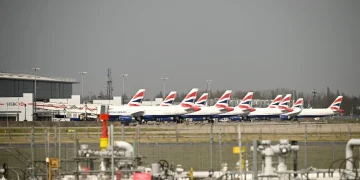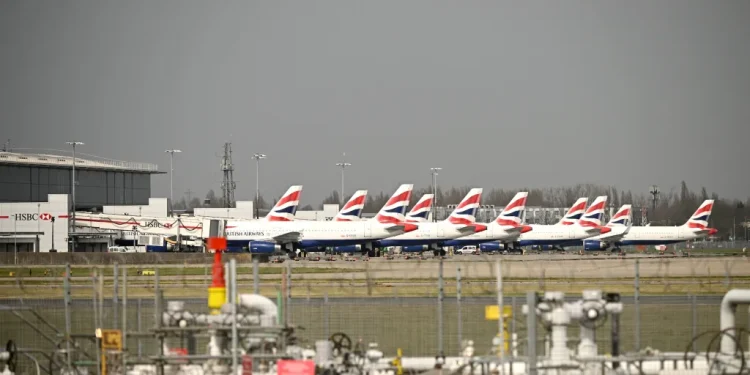By Maria Kalamatas – The Logistic News | March 25, 2025
Cargo operations at London Heathrow Airport have officially resumed following a large-scale power outage that brought terminal and freight handling to a standstill late last week. The recovery comes as welcome news to logistics operators, freight forwarders, and supply chain managers across the UK and Europe who depend on Heathrow as a key cargo gateway.
Back Online After 36 Hours of Shutdown
The disruption, caused by a fire at an electrical substation on March 21, prompted Heathrow to suspend all operations—both passenger and cargo—for more than 36 hours. While passenger services resumed progressively over the weekend, cargo-specific operations were restored in full by the evening of Sunday, March 24.
Officials confirmed that all critical systems including cargo handling, scanning, and documentation workflows have been reinstated and are now functioning normally. According to an official Heathrow statement, teams worked “around the clock” to restore safety systems and infrastructure.
Ripple Effects Across the Supply Chain
The outage affected hundreds of incoming and outgoing flights, forcing many freighter aircraft to divert or delay their cargo handling schedules. Industry sources estimate that the disruption impacted more than 1,300 cargo flights and caused a backlog of up to 5,000 tonnes of goods, including pharmaceuticals, perishables, and high-value electronics.
While some cargo was rerouted to other UK airports such as East Midlands and Stansted, many shipments experienced delays of 24 to 72 hours, depending on their routing and final destination.
Industry Response and Contingency Measures
Major freight operators and airlines, including DHL, Emirates SkyCargo, and IAG Cargo, activated contingency plans during the outage. These included rerouting sensitive goods, notifying clients of delays, and temporarily shifting operations to alternative facilities in mainland Europe.
“Heathrow remains one of our most important hubs in Western Europe,” said a spokesperson from a global 3PL provider based in Frankfurt. “Having it offline for even a day forces regional and global realignment. That said, the quick resumption of cargo operations has helped prevent a deeper disruption.”
Resilience and Infrastructure Under Scrutiny
While the return to normal operations has been met with relief, the incident has raised questions about the vulnerability of key logistics infrastructure. The International Air Transport Association (IATA) and the British International Freight Association (BIFA) have both called for an independent review into Heathrow’s emergency power protocols and risk mitigation systems.
“Critical infrastructure like Heathrow must be supported by robust failover systems,” stated Willie Walsh, IATA’s Director General, in a public comment on March 22. “A single point of failure should not bring one of Europe’s busiest logistics gateways to a halt.”
What’s Next for Cargo Stakeholders
As normal flight schedules resume, freight forwarders and cargo handlers are focused on clearing the backlog and ensuring time-sensitive goods meet their final delivery windows. Some express operators have extended working hours and increased staffing to handle delayed cargo.
Additionally, Heathrow is expected to release an incident report in the coming days outlining the cause of the outage and proposed improvements. For many in the sector, the event serves as a timely reminder of the need for investment in resilient, smart cargo infrastructure.
Conclusion
The swift recovery of Heathrow’s cargo operations is a testament to the coordination between airport authorities, airlines, and freight operators. Yet, the episode underscores how critical infrastructure vulnerabilities can disrupt global supply chains. As air cargo continues to serve as a backbone of international trade, resilience and foresight must remain priorities for every major logistics hub.
—
Stay connected with The Logistic News for continued updates on airport operations, global trade flows, and supply chain resilience.























